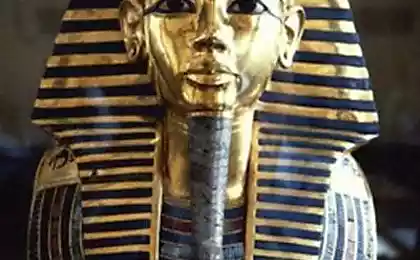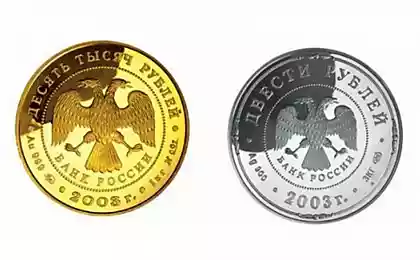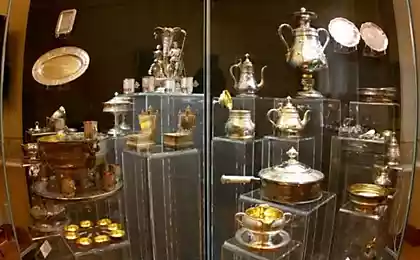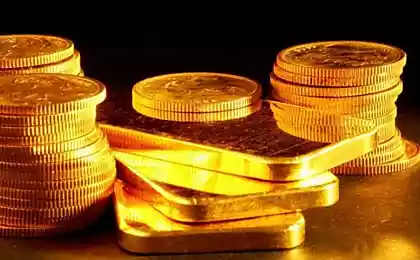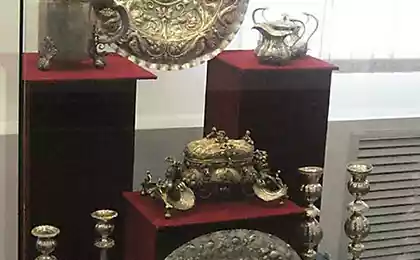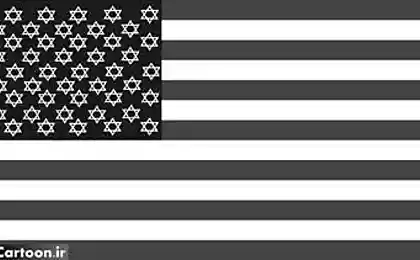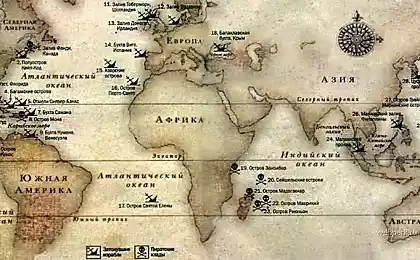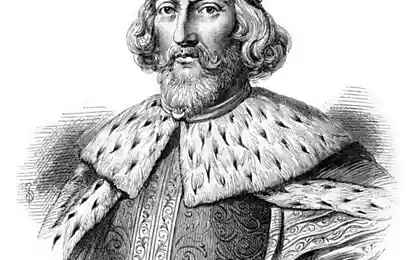505
Divers found Israel's largest treasure of gold coins
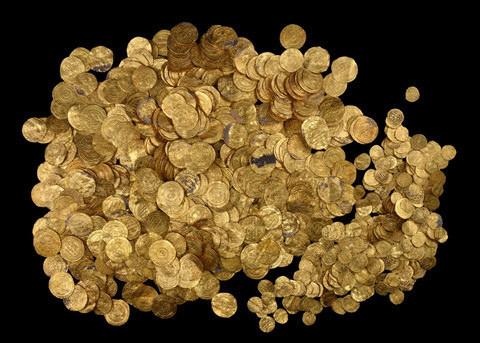
Photo: Israel Antiquities Authority.
On the seabed accidentally found more than two thousand coins of IX–XI centuries. Divers have discovered the largest trove of gold coins ever found in Israel. Coins found on the seabed in the ancient Harbor of Caesarea in Palestine.
The finding revealed the winter sea storms, according to the Department of Maritime archeology, the Israel antiquities authority. The coins date from the period of the Fatimid Caliphate. Among the nearly two thousand finds – coins of different size and weight, as well as different denominations: a Dinar, half Dinar and quarter Dinar.
The earliest coins from the treasure – dianara quarter that was minted in Palermo, Sicily in the second half of the IX century. Most of the coins belong to the caliphs of the dynasty Fatimid: al-Hakim (996-1021) and his son al-Zahir (1021-1036). These coins minted in Egypt and North Africa. In buried treasure no coins from the Eastern Muslim dynasties, on this basis, the researchers concluded that it belongs to the era of the Fatimid Caliphate.
The Director of the Department of Maritime archaeology Kobe Sharvit (Kobi Sharvit) reported that the archaeologists are going in the near future to conduct a rescue excavation on a place of detection of the treasure. According to him, there are several assumptions about how such a large treasure was on the seabed. Probably the coins sank with the ship which transported them. The ship could carry the taxes and sent to Egypt, where the government of the Caliphate. It is possible that the money was intended as wages, the military garrison of the Fatimids, who stood in Caesarea and protected the city. Another version says that it was a large merchant ship that sank in the Harbor.
According to Robert Cole (Robert Cole), numismatist of the Israel antiquities authority, the coins are in excellent condition. "Despite the fact that they have lain on the seabed for nearly a thousand years, they require no cleaning or restoration," said Robert Cole. He said that he discovered the coins remained in circulation and after the conquest of this region by the crusaders. A special "popular" they used in the port cities through which was initiated by the international trade. Some of the coins are bent and kept the teeth marks, if they checked the sellers and the owners. Many coins have signs of wear. At the same time, some quite "new", as if just minted.
Kobe Sharvit praised the divers who made the find. They immediately reported it to the experts. In Israel, the concealment of archaeological finds, their movements or trade are a crime, the maximum penalty for which is five years of imprisonment.
published

